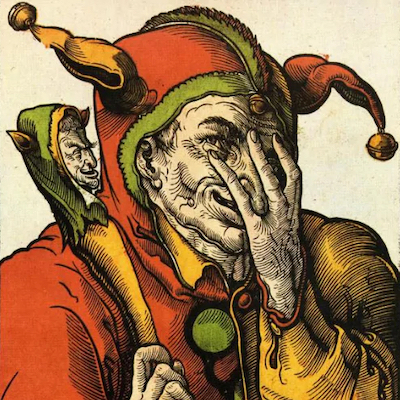Corporate Happiness

Happiness is the thing these days. All workers should be happy. The Agile Alliance tell me in a recent email that "The research is clear: happy workers are more productive workers." That may be true, but what does it mean? And how do you measure if I'm happy or not?
Somehow happy, a personal feeling, is being corporatised into Happiness, a vague thing that managers and HR departments are being asked to strive for in their workforces. Phrases like Action for Happiness, Invest in Your Employee's Happiness or The Happiness Index abound. There is now even a role: Chief Happiness Officer. It sounds suspiciously like politician-speak, a word or phrase to get everyone on board with a cause but that has absolutely no substance, like "Empowerment" and "Globalisation", like Obama's "We Will Move This Country Forward" and Trump's "Make America Great Again".
The term Happiness is a nominalisation. Happy is an adjective, it is a description of a very personal state, which would differ individual to individual, but here it is used as an abstract noun, a generic concept void of substance.
"Happy" is on its way to becoming the new "motivated"—another buzz word that recruiters will put on every job ad, like "self-starter", "enthusiastic", and possibly the worst of all, "team player". These are all meaningless terms, which essentially every single person who applies for the job will claim to have or to be. And happiness is simply a thinly-disguised recasting of team-player, now something to have rather than something to be. We need less job ad buzzwords, not more.
I personally dislike being coerced into being happy. I attended a WorldBlu event a few years ago, and there was a couple of guys dedicated to bringing happiness to work. They ran this extraordinarily phoney exercise that involved everyone high-fiving each other, and hugging. I tried to be a team-player, but I was dying inside. It was one of the worst experiences I've had at a conference.
And I don't want officers, or happiness-infected-managers directing how I feel at work. Sometimes I like to be grumpy at work. Sometimes I want to confront, antagonise, maybe get angry, or be irritable. And sometimes I'm simply sad, or possibly upset. None of these states are "happy". Where's the Chief Sadness Officer when I need him?
What I seek at work is to be engaged. I seek healthy relationships (not necessarily happy ones). I want to enjoy what I do; I want to feel inspired, challenged. I want to understand my purpose and the greater purpose of the group, product, organisation. I want to have difficult conversations in a meaningful, whole-emotion way, without worrying whether or not I'm bringing the happiness index down.
Your job as a leader or manager is not to "create happiness" but to foster a meaningful, engaging environment where people are listened to, and treated with kindness and respect. Happiness may follow. It may not. And it doesn't matter.
I think it's time to step off the happiness bandwagon. Happiness is not to be sought, and certainly not to be inflicted. It is a byproduct of a purposeful, engaged life.
"What man actually needs is not a tensionless state but rather the striving and struggling for some goal worthy of him. What he needs is not the discharge of tension at any cost, but the call of a potential meaning waiting to be fulfilled by him." —Victor Emil Frankl (1905-1997)
—
Further reading...
Scientists explain how happiness makes us less creative — Quartz
The (futile) pursuit of happiness — The Daily Mail
How to be perfectly unhappy — The Oatmeal
London, 02/06/2016 comment
